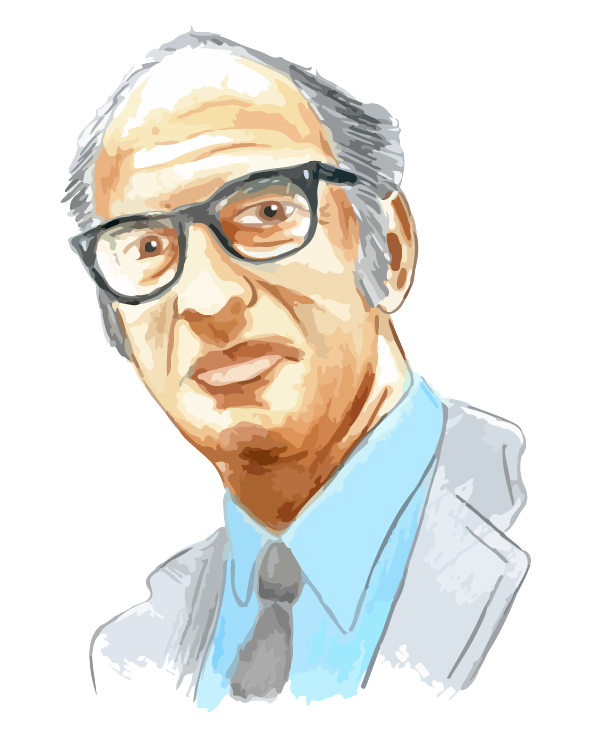Thomas Kuhn frases e citações
Thomas Kuhn: Frases em inglês
Fonte: The Structure of Scientific Revolutions (1962), VI. Anomaly and the Emergence of Scientific Discoveries, p. 64 (2012 ed.)
Fonte: The Structure of Scientific Revolutions (1962), VII. Crisis and the Emergence of Scientific Theories, p. 91 (2012 ed.)
Fonte: The Structure of Scientific Revolutions (1962), II. The Route to Normal Science, p. 11 (2012 ed.)
Fonte: The Structure of Scientific Revolutions (1962), II. The Route to Normal Science, p. 10
The Structure of Scientific Revolutions (1962), Preface
The Structure of Scientific Revolutions (1962), I. Introduction: A Role of History
Fonte: The Structure of Scientific Revolutions (1962), Preface, p. xiii (2012 ed.)
Fonte: The Structure of Scientific Revolutions (1962), XII. The Resolution of Revolutions, p. 149
The Structure of Scientific Revolutions (1962), I. Introduction: A Role of History
Fonte: The Structure of Scientific Revolutions (1962), II. The Route to Normal Science, p. 22 (2012 ed.)
Fonte: The Structure of Scientific Revolutions (1962), VII. Crisis and the Emergence of Scientific Theories, p. 76 (2012 ed.)
Fonte: The Structure of Scientific Revolutions (1962), III. The Nature of Normal Science, p. 24 (2012 ed.)
Fonte: The Structure of Scientific Revolutions (1962), I. Introduction: A Role of History, p. 5
Fonte: The Road Since Structure (2002), p. 16-17; from "What Are Scientific Revolutions?" (1982)
“Only when they must choose between competing theories do scientists behave like philosophers.”
Thomas Kuhn (1970) in Logic of Discovery or Psychology of Research?, edited by [Imre Lakatos, Alan Musgrave, Criticism and the growth of knowledge, Cambridge University Press, 1970, 0521096235, 7]
Fonte: The Structure of Scientific Revolutions (1962), VI. Anomaly and the Emergence of Scientific Discoveries, p. 52 (2012 ed.)
“By now it may be clear that the position I'm developing is a sort of post-Darwinian Kantianism.”
Fonte: The Road Since Structure (2002), p. 104; from "The Road since Structure" (1990)
Fonte: The Structure of Scientific Revolutions (1962), X. Revolutions as Changes of World View, p. 114 (3rd edn.)
Fonte: The Structure of Scientific Revolutions (1962), VI. Anomaly and the Emergence of Scientific Discoveries, p. 52
Fonte: The Structure of Scientific Revolutions (1962), XIII. Progress Through Revolutions, p. 170
Fonte: The Structure of Scientific Revolutions (1962), III. The Nature of Normal Science, p. 34 (2012 ed.)
Fonte: The Structure of Scientific Revolutions (1962), VI. Anomaly and the Emergence of Scientific Discoveries, p. 64 (2012 ed.)
Fonte: The Structure of Scientific Revolutions (1962), V. The Priority of Paradigms, p. 46
Fonte: The Structure of Scientific Revolutions (1962), IV. Normal Science as Puzzle-solving, p. 38.
Perhaps there is some other way of salvaging the notion of ‘truth’ for application to whole theories, but this one will not do. There is, I think, no theory-independent way to reconstruct phrases like ‘really there’; the notion of a match between the ontology of a theory and its “real” counterpart in nature now seems to me illusive in principle. Besides, as a historian, I am impressed with the implausability of the view. I do not doubt, for example, that Newton’s mechanics improves on Aristotle’s and that Einstein’s improves on Newton’s as instruments for puzzle-solving. But I can see in their succession no coherent direction of ontological development. On the contrary, in some important respects, though by no means in all, Einstein’s general theory of relativity is closer to Aristotle’s than either of them is to Newton’s.
The Structure of Scientific Revolutions (1962), Postscript (1969)
"Logic of Discovery or Psychology of Research?", Criticism and the growth of knowledge edited by Imre Lakatos and Alan Musgrave (1970)
"Logic of Discovery or Psychology of Research?", Criticism and the growth of knowledge edited by Imre Lakatos and Alan Musgrave (1970)
